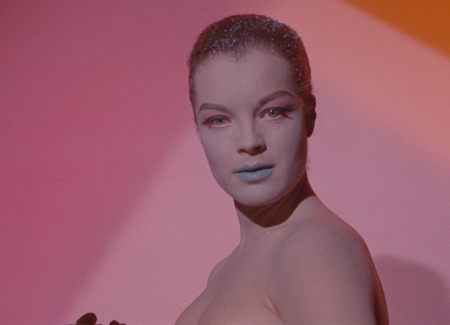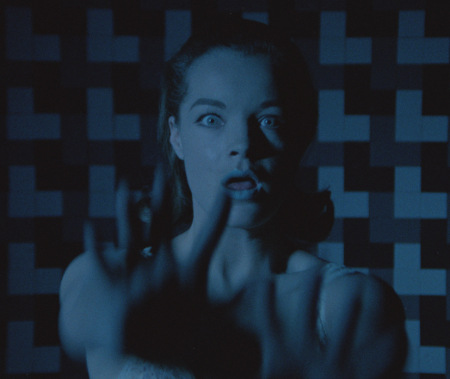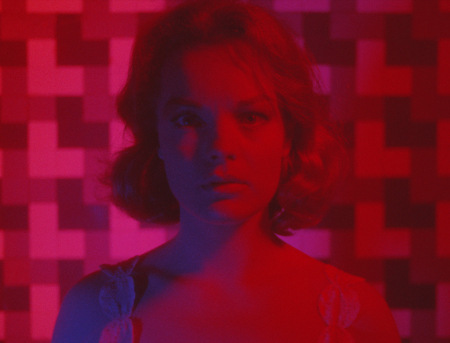 Film director Henri-Georges Clouzot nearly lost his mind, as well as his career and even his life, obsessing over the Austrian-born multilingual actress Romy Schneider.
Film director Henri-Georges Clouzot nearly lost his mind, as well as his career and even his life, obsessing over the Austrian-born multilingual actress Romy Schneider.
In 1963, Clouzot, then one of France’s most acclaimed filmmakers, began work on “L’Enfer,” a tale of male jealousy and madness. A blank check from Columbia Pictures burning in his pocket, the 54-year-old Clouzot meticulously prepared his film. His journey of compulsion — dragging along colleagues — was rare for an artist of his caliber. At 26, Schneider, a fulsome, vixen-like actress was the object of Clouzot’s desire.
 Clouzot’s preparation included detailed storyboards, a color-coded notation system indicating changes in the protagonist’s mood, and a set of obsessively precise sound-design instructions. Once shooting began, he swapped between b&w and color, turning lake water blood-red and altering the actors’ skin tones.
Clouzot’s preparation included detailed storyboards, a color-coded notation system indicating changes in the protagonist’s mood, and a set of obsessively precise sound-design instructions. Once shooting began, he swapped between b&w and color, turning lake water blood-red and altering the actors’ skin tones.
Clouzot’s “L’Enfer” is one of cinema’s most notorious films gone wrong. After weeks of all-night prepping, and days of shooting scenes that led nowhere, the production began to crumble. Soon after driving leading man Serge Reggiani off the set, Clouzot suffered a heart attack (not fatal) while shooting footage on a small boat. How much worse can it get?
 I asked my cinephile friend Joel Bellman to ‘splain Clouzot’s importance.
I asked my cinephile friend Joel Bellman to ‘splain Clouzot’s importance.
“Henri-Georges Clouzot has been called “the French Alfred Hitchcock,” writes Joel. “This serves to diminish both filmmakers.”
He continues, “Hitchcock and Clouzot shared a facility for taut thrillers, but there the resemblance largely ends. If Hitch’s crowd-pleasing romps showcased his “murderous gaze,” as one critic put it, they invariably included a mischievous wink. Clouzot’s perspective might better be described as the cold stare of pitiless cruelty, conceding nothing. The most memorable sequences in his two best-known films, “Le Salaire de la Peur” (“The Wages of Fear”) and “Diabolique,” plunge into the heart of darkness where characters don’t just die; they suffer excruciatingly first, their inescapable fate not always deserved. Only once did Hitchcock approach Clouzot’s level of obsession and personal torment – in “Vertigo,” which not coincidentally also flowed from the pen of Boileau-Narcejac, the writing team behind “Diabolique.” Unlike Hitchcock, Clouzot’s murderous gaze never blinked.”
Serge Bromberg’s documentary, telling the saga of Clouzot’s L’Enfer, soon to be issued on blu-ray by our friends at Flicker Alley, has an special screening.
Henri-Georges Clouzot’s Inferno | New Beverly Cinema | February 4-5

Hitchcock never injected political commentary into his films. The cruel oppression of American imperialism hangs over Wages of Fear, and the critique of corporate disregard for human life is just as valid today.